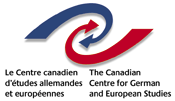Research and study centers
The Department of Philosophy considers research very important. Driven by a spirit of discovery, our professors carry out personal research on a variety of topics as well as directing or collaborating with many research teams. Their papers are also published in the most prestigious publications devoted wholly or partly to ethics and philosophy.
The different research units closely associated with the Department of Philosophy are listed below. Several of them, with FRQSC or SSHRC funding, are headquartered at the Université de Montréal.
In the same spirit, cross-fertilization of ideas and new findings offers fertile ground for Ithaque, the student philosophy journal. It is also a source of inspiration for the professors at the Department, many of whom have written prominent books and essays in recent years.
Research Chair, centres and groups
Ésope Chair
Centre de recherche en éthique (CRÉ)
The mission of the Ethics Research Centre is to advance knowledge and the quality of education in the field of ethics. It serves as a discussion forum and a source of synergy for the University's researchers. It also provides support for graduate students and postdoctoral fellows whose work is related to the Centre's mission.
The Centre collaborates with national and international associations, and partners with professional bodies and government authorities. It ensures that the results of its research will help to shape debate in civil society and guide political decision-making processes.
Canadian Centre for German and European Studies

The Centre, an initiative of the German Academic Exchange Service (DAAD), is attached to the Université de Montréal and York University. It brings together some 20 professors in the social sciences and humanities with the goal of fostering higher education, research and awareness at the national and international levels.
The Centre organizes research trips to Europe, as part of a complementary diploma in European and German studies leading to a PhD or master’s degree.
Its research currently focuses on 3 areas:
- The relevance of the philosophy of Max Weber in today’s world
- Relations between the Balkans and the West
- Construction of collective memory and identity
Its members and managers include Iain Macdonald and Peter Dietsch, professors in our Department.
Centre d'études classiques

The Centre for Classical Studies looks to the past to gain a deeper understanding of today’s world and the foundations of language and thought, through its study programs, archaeology missions and laboratory work.
Centre d'études de l'Asie de l'Est (CÉTASE)
Since 1976, the CÉTASE has been overseeing the co-ordination and development of research, teaching and other activities related to East Asia at the Université de Montréal.
The Centre includes over 20 experts in East Asian languages, literature, film, history, philosophy, economics, geography, anthropology and communications.
Research groups and society
Groupe de recherche interuniversitaire en philosophie politique (GRIPP)
The GRIPP brings together 16 political philosophy and political theory professors along with postdoctoral fellows and graduate students from UQAM, Concordia, McGill and the Université de Montréal. On the general theme of “new developments in democratic theory: toward an integrated approach,” their research focuses on 4 interrelated and mutually supportive areas:
- History and principles
- Moral psychology of the democratic agent
- Democracy and diversity
- Democracy, justice and transnational institutions
Interuniversity Normativity Research Group (GRIN)

The GRIN, founded in 2009, is composed of philosophers from different universities and one institute, and welcomes graduate students and postdoctoral fellows. Its mandate is to study normativity in 4 major philosophical fields, i.e.:
- Ethics
- Philosophy of action
- Philosophy of mind
- Philosophy of knowledge
The Group receives funding from FRQSC. The current grant, Penser la normativité: une étude philosophique, will cover GRIN activities until 2017.
Société de Philosophie Analytique (SoPhA)

The analytical philosophy society, or SoPhA, is an international association in the analytical philosophy tradition.
In fact, “analytical philosophy” refers to a tradition as well as to an attitude, understood in a broad sense with no limitation as to doctrine, method or subjects. Analytical philosophy delves into many themes, including:
- Philosophy of language
- Logics, mathematics and the study of formal systems
- Metaphysics
- Philosophy of science and epistemology
- Moral and political philosophy
- Social and legal philosophy
- Philosophy of religion
Christine Tappolet, a professor in the UdeM Department of Philosophy, is President of the Society.